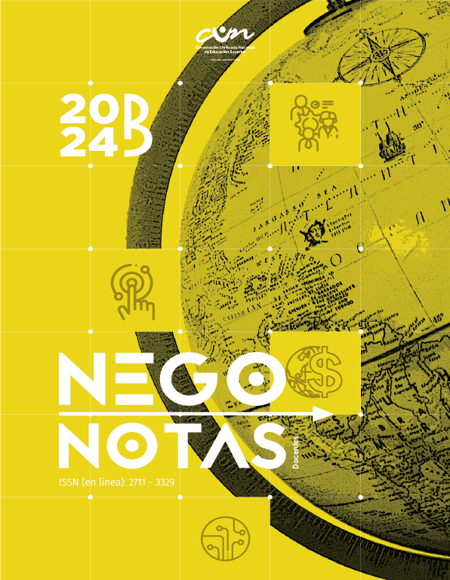To understand the Simplified Trust Regime: an analytical approach from multiple perspectives
Para entender el Régimen Simplificado de Confianza: un enfoque analítico desde múltiples perspectivas
Main Article Content
Abstract
The simplified trust regime is a fundamental aspect of the tax landscape that seeks to simplify tax processes for certain taxpayers. In this article, we explore the simplified regime from multiple perspectives using an analytical approach. We begin by contextualizing its importance and objectives within the tax system, highlighting its focus on trust and administrative simplification. Through a comprehensive review of the literature and analysis of empirical data, we examine the various aspects of the simplified trust regime. We consider its impact on administrative efficiency, tax equity, and regulatory compliance. In addition, we critically assess its strengths and limitations from the point of view of taxpayers, tax authorities, and society at large. Our analysis reveals several significant findings. On the one hand, the simplified trust regime has proven to be effective in reducing the administrative burden and facilitating tax compliance for many taxpayers, especially small businesses and the self-employed. However, it also poses significant challenges in terms of fairness, transparency, and regulatory compliance. By examining the regime from multiple perspectives, we identify key areas for improvement and optimization. This includes the need to establish stronger supervisory mechanisms to mitigate the risk of tax evasion and ensure fairness in the treatment of taxpayers. We also highlight the importance of promoting tax education and transparency to strengthen trust in the tax system. In summary, this article provides a deep and nuanced understanding of the simplified trust regime, offering important insights to inform future tax policies and promote more equitable and efficient systems. Our analytical approach from multiple perspectives highlights the complexity and diversity of challenges and opportunities associated with this key tax regime
Downloads
Article Details
References (SEE)
Ardila, J., Florez, Y., y Asprilla, Y. (2020). Análisis jurídico de las garantías laborales de las trabajadoras sexuales en el marco del estado social de derecho colombiano. Pensamiento Americano, 13(25), 141-155. https://doi.org/10.21803/pensam.13.25.387
Arrieta-Valderrama, E., Cabarcas, M., y Rodríguez-Arias, C. (2019). Análisis de las necesidades de bienestar laboral de los empleados de universidades en la región caribe: Caso barranquilla. Ad-Gnosis, 8(8). https://doi.org/10.21803/adgnosis.v8i8.365
Bolaños, R. (2023). Aprendizaje basado en proyectos: una adaptación pedagógica para la innovación y el desarrollo socio-organizacional. Región Científica, 2(2), 2023104. https://doi.org/10.58763/rc2023104
Caballero, S., Lozano, J., Cruz, K., y Parra, A. (2022). Aplicación del fuero materno en los contratos de maternidad subrogada: retos y desafíos en el ordenamiento jurídico colombiano. Pensamiento Americano, 15(29), 139-151. https://doi.org/10.21803/penamer.15.29.511
Cámara de Diputados del Congreso de la Unión (2021). Ley del impuesto sobre la renta del 12 de noviembre del 2021. Articulo 113-E. https://www.diputados.gob.mx/LeyesBiblio/pdf/LISR.pdf
Castañeda, R., Arias, D., y Santos, A. (2023). Control de bienes patrimoniales y su relación en el saneamiento físico e información contable en las municipalidades de Lima. Región Científica, 2(1), 202341. https://doi.org/10.58763/rc202341
Díaz, B., y Mapén, F. (2022). Análisis de las implicaciones fiscales del régimen simplificado de confianza en méxico: Un nuevo esquema de tributación para el 2022. Revista Facultad de Ciencias Contables Económicas y Administrativas-FACCEA, 12(1), 98-108. https://editorial.uniamazonia.edu.co/index.php/faccea/article/view/521
Díaz, G., Rodríguez, V., y Ordaz, C. (2022). Régimen Simplificado de Confianza Para Personas Físicas: Una Oportunidad de Contribuir Fácilmente. Vinculatégica EFAN, 8(3), 26-34. https://vinculategica.uanl.mx/index.php/v/article/view/193
Eslava, R., Arenas, N., y Rojas, D. (2024). Papeles de Trabajo. Estudio empírico con las Norma Internacional de Control de Calidad 1. Región Científica, 3(1), 2024243. https://doi.org/10.58763/rc2024243
Fabregas, C. (2020). El líder transformador y el líder rutinario: sus manifestaciones en hombre y mujer. Ad-Gnosis, 9(9), 97–100. https://doi.org/10.21803/adgnosis.9.9.440
Flores, M., Zamora, L. y Ferrer, E. (2023). Régimen simplificado de confianza: personas morales en Hernández, Nevarez, Galván y Rojero-Jiménez (Ed.). Innovación, industrialización sostenible y complejidad productiva en las organizaciones pp. 105-114. https://www.researchgate.net/profile/Cesar-Gracia-6/publication/377628200_GESTION_DE_LA_CALIDAD_EN_EL_SERVICIO_EN_LAS_MIPYMES_XALAPENAS/links/65b01d128c1a4a6d1d1c2982/GESTION-DE-LA-CALIDAD-EN-EL-SERVICIO-EN-LAS-MIPYMES-XALAPENAS.pdf#page=114
García, M., López, L. y Romero-Carazas, R. (2023). Control interno de inventario y la gestión de resultados de un emporio comercial de la región de San Martín - Perú. Región Científica, 2(2), 202392. https://doi.org/10.58763/rc202392
Gómez, C., y Sánchez, V. (2023). Estrategias para el fortalecimiento del Programa de Administración en la Universidad de la Amazonia. Estrategia Y Gestión Universitaria, 11(2), 33–52. https://doi.org/10.5281/zenodo.8145076
Gómez, C., Aristizabal, C., y Fuentes, D. (2017). Importancia de la información financiera para el ejercicio de la gerencia. Desarrollo Gerencial, 9(2), 88–101. https://doi.org/10.17081/dege.9.2.2977
González, D., Garzón, D., y Sánchez, V. (2023). Cierre de las empresas del sector turismo en el municipio de Leticia: una caracterización de los factores implicados. Región Científica, 2(1), 202342. https://doi.org/10.58763/rc202342
González, R. (2023). La transversalidad del medioambiente: facetas y conceptos teóricos. Región Científica, 2(2), 202393. https://doi.org/10.58763/rc202393
Guerrero, M. (2016). La investigación cualitativa. INNOVA Research Journal, 1(2), 1-9. http://201.159.222.115/index.php/innova/article/view/7
Jaramillo, B., Borja, A., y Ríos, D. (2019). Influencia del proceso de inclusión a la inversa en el contexto educativo. Pensamiento Americano, 12(24), 69–78. https://doi.org/10.21803/pensam.v12i24.311
Mogrovejo, J. (2022). Estrategias resilientes y mecanismos de las organizaciones para mitigar los efectos ocasionados por la pandemia a nivel internacional. Región Científica, 1(1), 202211. https://doi.org/10.58763/rc202211
Orozco, E. (2022). Experiencias en torno al emprendimiento femenino. Región Científica, 1(1), 20227. https://doi.org/10.58763/rc20225
Palacios, A., y Córdoba, C. (2020). Competencia investigativa como herramienta pedagógica en la enseñanza del derecho. Pensamiento Americano, 13(26), 127-138. https://doi.org/10.21803/penamer.13.26.425
Pérez Chávez, J. y Fol Olguín, R. (2022). Régimen Simplificado de Confianza (RESICO). (1 ed.). Tax Editores Unidos. https://elibro.net/es/ereader/ieu/218443?page=13
Pérez Chávez, J. y Fol Olguín, R. (2023). Régimen simplificado de confianza: de personas físicas y de personas morales. Tax Editores Unidos. https://elibro.net/es/ereader/ieu/229405?page=15
Pérez, A. (2023). Contribution of graph theory to the understanding of social dynamics. AWARI, 4. https://doi.org/10.47909/awari.51
Pérez, A., Gómez, C., y Sánchez, V. (2022). Decision making in university contexts based on knowledge management systems. Data and Metadata, 1, 92. https://doi.org/10.56294/dm202292
Pérez, F. (2023B). La extrafiscalidad del nuevo régimen simplificado de confianza. Biolex, 15. https://www.scielo.org.mx/scielo.php?pid=S2007-55452023000100202&script=sci_abstract
Prada, J. (2023). Modelo de Deterioro de los Instrumentos Financieros. Región Científica, 2(1), 202317. https://doi.org/10.58763/rc202317
Ripoll, M. (2023). El emprendimiento social universitario como estrategia de desarrollo en personas, comunidades y territorios. Región Científica, 2(2), 202379. https://doi.org/10.58763/rc202379
Rodríguez, E., Gómez, C., y Sánchez, V. (2022). Management information systems and their impact on business decision making. Data and Metadata, 1, 21. https://doi.org/10.56294/dm202221
Rodríguez, E., Pérez, A., y Camejo, Y. (2023). La formación del liderazgo distribuido en la intervención a favor del patrimonio cultural. Transformación, 19(2), 317-336. http://scielo.sld.cu/scielo.php?script=sci_arttext&pid=S2077-29552023000200317&lng=es&tlng=en
Rodríguez, R., Landazury, L., Lugo, E., Sandoval, R., y Jiménez, Y. (2020). Descripción de la situación actual del sistema logístico en la región caribe colombiana. Ad-Gnosis, 9(9), 83–95. https://doi.org/10.21803/adgnosis.9.9.439
Roman-Acosta, D., Caira-Tovar, N., Rodríguez-Torres, E., y Pérez, A. (2023). Effective leadership and communication strategies in disadvantaged contexts in the digital age. Salud, Ciencia Y Tecnología - Serie De Conferencias, 2, 532. https://conferencias.saludcyt.ar/index.php/sctconf/article/view/532
Valencia, A., Patiño, G., y Castillo, V. (2023). La gestión del conocimiento ambiental: Propuestas en sistemas de educación. Bibliotecas. Anales de Investigación, 19(2), 7. https://dialnet.unirioja.es/servlet/articulo?codigo=9027955








